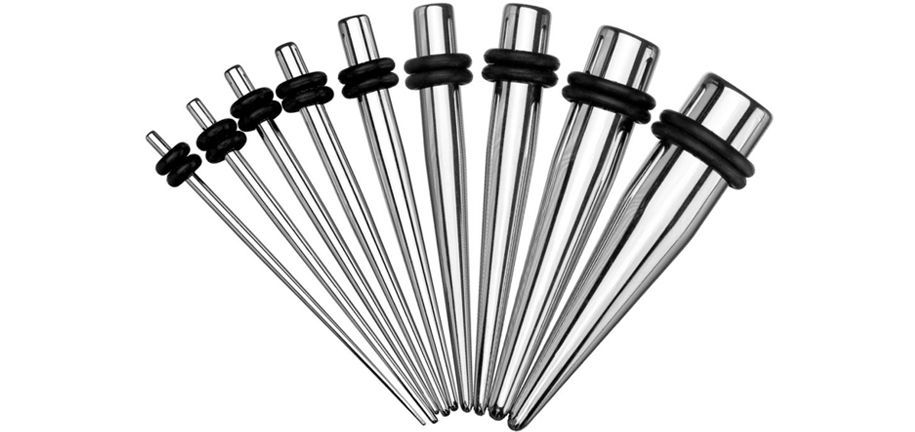
Piercing Jewelry Materials
The Complete Guide to Surgical Steel Piercing Jewelry
Surgical steel is one of the most common materials in the piercing industry today, mainly because of the material's low cost and adaptability to the human body.
What are the advantages of surgical steel?
Surgical steel has great advantages:
- It has a shinier surface than, for example, titanium. This means you can get sophisticated designs in surgical steel for your , , , and other kinds of piercing jewelry.
- It is cheaper than other materials such as titanium and gold. It can be coated with both materials, however, for a special touch.
- It can be sterilized without losing its color.
- Some people like the weightiness when using them in their stretchings. Especially when compared to acrylic and some organic materials that are incredibly light.
- Surgical steel is a versatile material that most people can safely use, thanks to its micro-polished finish.
- Surgical steel doesn’t rust.


What are the disadvantages of surgical steel?
- Surgical steel can get very cold in low temperatures. Therefore, it can be uncomfortable to wear if you don't cover it up when you're out in the cold.
- Surgical steel can damage your teeth if used in tongue piercings. An excellent solution to this is to combine surgical steel with acrylic tongue-piercing balls.
- It should not be used by those who have a nickel allergy. If you have suffered from nickel rashes or allergies, you should stick to titanium and PTFE.

by2
Posted in:
